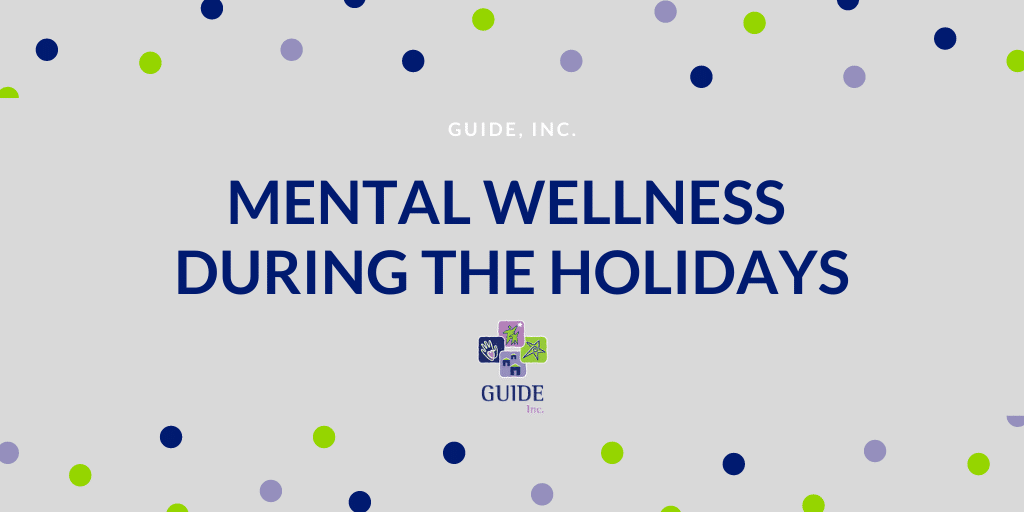
The holidays can be a fantastic time of year – filled with fun, happiness and opportunities to connect with family and friends. Though they are viewed as happy times by many, the holidays are also often associated with additional pressures and stresses. No matter the holiday – from Easter to the Fourth of July to Christmas – we often feel increased demands to visit with others, host or attend events and spend extra money, which can lead to feelings of anxiety, stress and sadness. Some people who have experienced a loss or who lack family or friends nearby may also feel alone or isolated during the holidays. Moreover, individuals who already suffer from anxiety, depression or other mental health issues may feel even worse during these times of the year. However, taking steps to be mindful of maintaining mental wellness can help us combat negative feelings and enjoy the holidays more.
Five tips for mental wellness during the holidays:
- Continue your normal healthy habits. Try your best to keep to your normal routines, including around the household and with your personal health, such as by exercising and eating well. An example of this could be planning ahead to keep your diet on track by incorporating many colorful foods and optimal nutrient pairings into your holiday meals.
- Set realistic expectations. Try your best to adjust your expectations and set realistic goals for yourself over the holidays. Don’t overcommit or compare your holidays to other people’s or ones from the past. Remind yourself that it’s okay to say “no,” and sit out of an event or activity if it feels overwhelming.
- Take some time to de-stress. Make time for yourself to break away from the festivities and clear your mind. Simple acts of taking a walk, meditating, doing breathing exercises or listening to music can go a long way in helping to reduce stress. Figure out what your ideal de-stressing activity is and build in time to do it.
- Don’t rely on drugs or alcohol. Despite common misconceptions, substance use of any kind doesn’t reduce stress but actually often exacerbates symptoms. These are negative coping mechanisms that make you feel worse and put you at a greater risk of dependency. You can learn all about how alcohol affects your brain and body at savebrains.org. If you have time off from school or work over the holidays, check out 50 Things to Do Besides Drink Alcohol. While you’re home for the holidays, also consider cleaning out your medicine cabinet so your expired, unused or unwanted prescription drugs aren’t misused.
- Seek professional help if you need it. If you already have a therapist or support group you see regularly, it’s important to stick with your routine over the holidays to maintain continuity. If you feel like anxiety, stress or sadness are taking over your mental, emotional or physical well-being or are impacting your ability to do normal tasks, talk to your doctor or mental health professional as soon as possible. If you don’t have one, several resources exist to help connect you to a mental health professional, such as SAMHSA and the Georgia Crisis & Access Line (GCAL).
Take steps to prevent anxiety, stress and sadness from taking over your holidays. With a little bit of mindfulness and self-care, you will hopefully find yourself feeling more joy during these times of the year.
Want an easy reference guide? Check out 5 Practices to Improve Your Mental Wellness for a printable tool you can use any time of year. If you’re looking for more, we have a great list of Suicide Prevention & Mental Health Resources.
